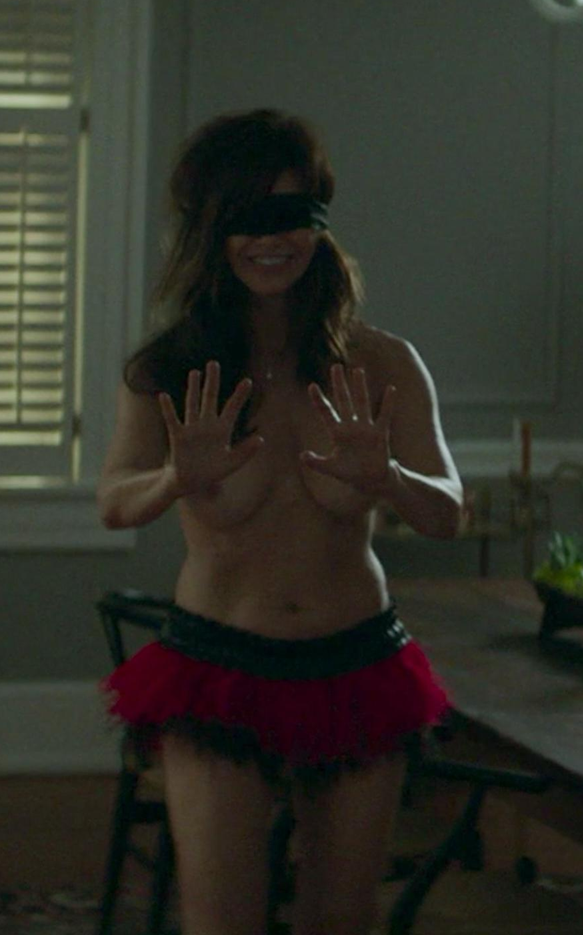Blockers

Movie Info:
🧠 Plot Summary
Blockers (2018) is Kay Cannon’s feature film debut, and she directs a heartfelt coming-of-age story filled with raunchy humor. The movie revolves around a matriarchal narrative, straying from the conventional approach taken in teen sex comedies. Three high school girls, Julie (Kathryn Newton), Kayla (Geraldine Viswanathan), and Sam (Gideon Adlon), make a pact to lose their virginities on prom night. Their preposterous plan gets foiled by their worried, overbearing parents who have set out on a wild mission to “block” them from achieving it.
The film opens with a nostalgic montage showcasing the girls’ enduring friendship that has lasted from childhood into their teenage years. On prom night, Julie, the romance oriented idealist, hopes to consummate her years-long relationship with her boyfriend. Kayla the bold and adventurous one, is set to sleep with her goofy date Connor. Sam quietly questioning her sexuality, goes along with the plan largely due to peer pressure though she secretly harbors a crush on a female classmate.
Sam’s father, Hunter (Ike Barinholtz), Kayla’s father, Mitchell (John Cena), as well as Julie’s mother Lisa (Leslie Mann) all panic when they unearth sexually coded texts and emojis sent and received by girls. As frantic as the parents are, what follows is an equally hilarious and fast-paced odyssey through peek prom, house parties, and hotel awkwardness as they try to track down and “save” their daughters.
As emotional breakdowns and butt chugging (yes, really) intersperse the frantic car chases and beer-guzzling contests, the parents slowly begin to understand that saving their daughters might not be the actual mission at hand. Instead, it’s likely about confronting fears around change, loss, and letting go.
Daughters reconciling with self-image by the end of the film looks like: Kayla exercising her decision-making skills, Julie realizing the importance of her sexuality, and Sam mustering courage to come out. In turn, parents reinforce that control is futile when it comes to the beauty of parenthood and trust is paramount.
🎭 Characters and Performances
Lisa Decker (Leslie Mann)
Lisa is a single mother faced with growing children while actively dreading the impending prospects of a desolate home. Mann equally shares the emotional depth and neurotic comedy tugging at overbearing parent appendages. Her love-motivated, overbearing tendencies soften in the form of growth, and in learning to give Julie space, her character arc becomes wholesome.
Mitchell Mannes (John Cena)
Cena surprises with impeccable comic timing as Kayla’s dad, an emotionally sensitive and overprotective father. His physicality works for the role, but what makes his performance memorable is his vulnerability—most notably in scenes where he struggles to keep tears at bay.
Hunter Lockwood (Ike Barinholtz)
Hunter begins as an immature estranged father who Barinholtz makes the film’s emotional anchor. Among the film’s best moments is his supprt of Sam’s sexuality which is delivered with surprising emotional resonance alongside a more developed narrative. He shifts from comic relief to empathetic character, which is quite the transformation.
Julie Decker (Kathryn Newton)
A modern and autonomous teen, Julie is smart, in love, and exercises agency over her life choices. Newton portrays her with sincerity and grace, and her calm confrontation with Lisa stands as one of the film’s highlights emotionally.
Kayla Mannes (Geraldine Viswanathan)
Viswanathan has emerged first among all the performers. Kayla is both hilarious and refreshingly honest. She and Cena’s Mitchell have a funny and endearing relationship. Her comic instincts run so deep that she often dominates the interactions.
Sam Lockwood (Gideon Adlon)
Sam is introspective and on the quieter side. Adlon’s performance is so beautiful in this aspect, and she deals with internal struggle gently. One of the film’s most genuine moments is her coming out scene and the supportive reaction from her father.
🎥 Themes and Symbolism
Consent and Sex Positivity
“Blockers” is unusual within its genre in that it treats teen sexuality with a fair degree of respect. The daughters have autonomy, and the film upholds clear dialogue and consent as a guiding principle. It brings a much-needed breath of fresh air from the male-obsessed virginity story arc prevalent in films such as American Pie.
Control and Parental Anxiety
The focal point of “Blockers” is the anxiety parents feel dealing with the fear of irrelevance. Each of the three parents—Lisa, Mitchell, and Hunter—encapsulate a different anxiety, which is detachment, failure, judgment, and wildly inappropriate behavior. Their wild night of “blocking” is really a metaphor for how they seek acceptance.
Female Friendship and Togetherness
Julie, Kayla, and Sam are never conflictual or pigeonholed. Their pact is not about peer pressure; it is anchored in solidarity, lived experiences, and personal choice. They are given agency and a measure of dimension without undermining their individuality.
LGBTQ+ Representation
Sam’s self-discovery is handled with care, making her journey resonate with many. Her arc is not a punchline or a subplot; it is a core emotional beat that adds depth to the narrative and to both her and Hunter’s character development.
🎞️ Cinematic Style and Mood
The style of the film is marked by cinematic atmosphere and Kay Cannon’s direction which, while rooted in heart, balances genres with the raunchy comedy. There is brisk pacing, outrageous and inventive set pieces, and the emotional beats are not lost in the noise. Each character had a chance for their individual story to unfold, with the screenplay provided by Brian and Jim Kehoe.
The handheld camerawork in the chase scenes maintains a high energy level, creating an authentic and vibrant feeling in the film’s energetic party scenes. While the outrageousness of the gags is humor-driven, the focus remains on the characters and relationships, framing them grounded through the cinematography.
As energizing and youth-centric as the film’s soundtrack is, it also uses quiet moments to employ minimal but effective scoring.
⭐ Reception and Interpretation
Critical Response
Blockers is being celebrated for its new and different take on the teenage comedy genre. Reviewers praised the film’s underlying progressive concepts, sharp writing, and excellent performances, especially from Geraldine Viswanathan and John Cena. The film was also praised for combining crude humor with genuine insights.
Box Office and Audience Reaction
With a gross income of over $94 million, Blockers earned its place as a commercial success sitting alongside “hit” movies of the year. The film was remarkably successful for both parents and adolescents, providing an honest and sincere portrayal of coming of age—and letting go. Audiences found value in the film’s inclusive approach and were genuinely moved by its message.
📽️ Key Takeaways for Viewers
Blockers provides an empowering, inclusive perspective by turning the sex comedy genre around completely.
It shifts focus from mere teen rebellion to parents grappling with their deep-seated insecurities.
Absurdity and comedy in the film pack genuine emotions that resonate strongly.
✅ Conclusion
The film Blockers (2018) is not just a raunchy comedy. It is a smart, heartwarming, and funny movie underpinned with themes relevant to the coming of age not just for teenagers but also for their parents. Amidst clichés that saturate this genre, the film shines through its clever writing, notable acting, and its forward-looking themes. It is refreshingly bold and funny, yet deeply moving for a coming-of-age film. Equally, it is a modern teen comedy that displays much intelligence and offers bountiful remnant of laughter.








